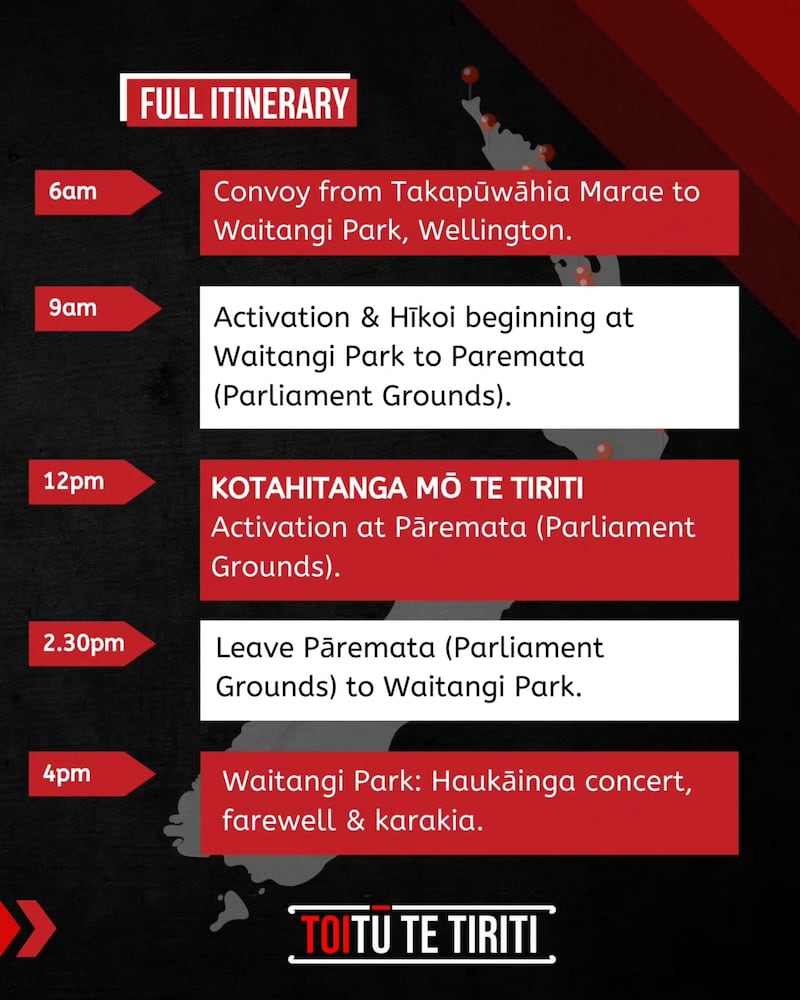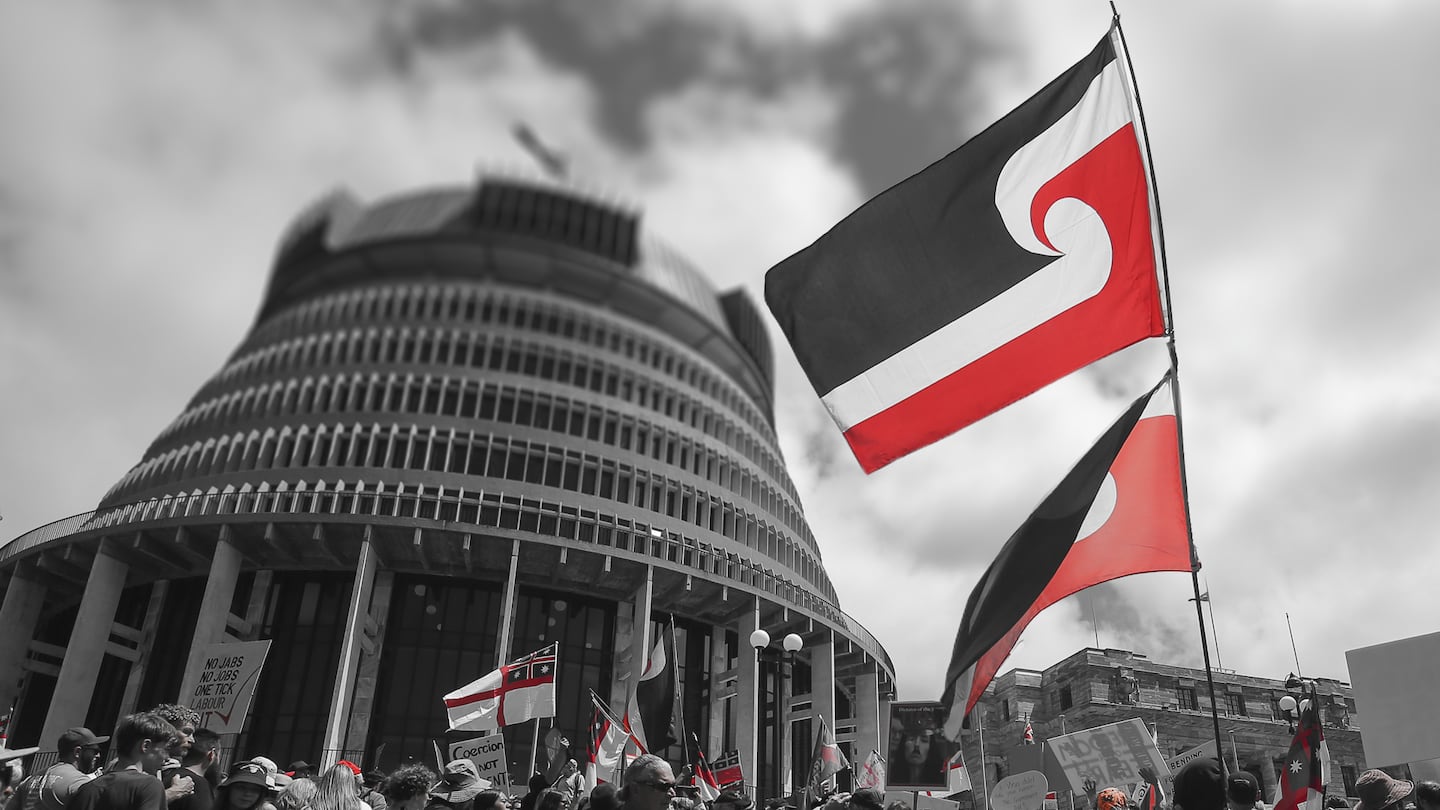Up to 30,000 people are predicted to march on Parliament tomorrow morning, protesting the Treaty Principles Bill, which seeks to redefine how Aotearoa interprets te Tiriti o Waitangi.
Te Arikinui Kuini Nga wai hono i te po will be among the thousands protesting the bill, which passed its first reading on Thursday, despite a Hana-Rawhiti Maipi-Clarke-led haka, which has since gone globally viral.
Tomorrow will be the most significant day of te Hīkoi mō te Tiriti, presenting to Parliament a petition to kill the Treaty Principles Bill, signed by nearly 150,000 people so far.
The arrival of the hīkoi was originally intended to coincide with the first reading but that was brought forward to last Thursday, to much criticism.
The hīkoi tomorrow will leave from Porirua to assemble in Waitangi Park in Wellington, before marching towards Parliament across the Wellington CBD.

The bill itself is doomed to fail, only passing its first reading as a consequence of a coalition agreement between National, ACT and NZ First.
ACT’s two coalition partners have promised they will shoot down the bill at the second reading.
Nonetheless, its passage through its first reading opens up a six-month process of public debate before a select committee.
David Seymour has argued his new proposed principles are a true reflection of the intent but translators have criticised the bill as ‘deeply flawed translation’, while Ministry of Justice officials have warned against redefining the principles.



